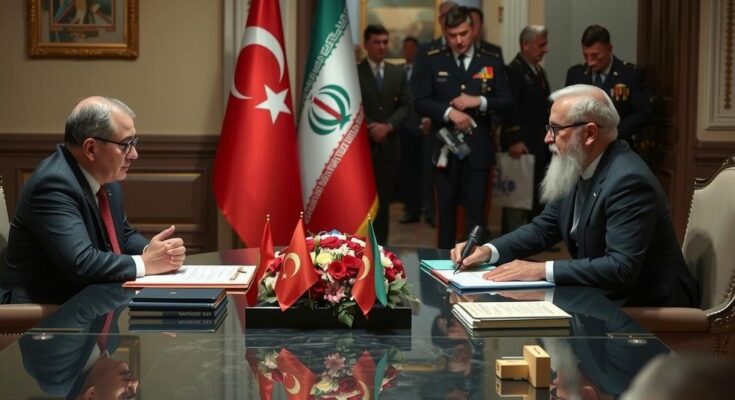In December, Bashar al-Assad informed Iran that Turkey was aiding Sunni rebels to destabilize his regime. Assad’s regime ended as he fled to Moscow for asylum after 50 years of rule. This shift poses challenges for Iranian influence and marks a significant change in Middle Eastern geopolitics.
In the final days preceding his ouster, Syrian President Bashar al-Assad expressed grave concerns to Iranian Foreign Minister Abbas Araghchi regarding Turkey’s support for Sunni rebels aiming to overthrow him. This meeting, held on December 2 in Damascus, underscored the tensions as rebel forces from Hayat Tahrir al-Sham (HTS) made significant advances toward the Syrian capital. Following Assad’s plea, Araghchi conveyed these apprehensions to Turkish officials, highlighting Iran’s dissatisfaction with Turkey’s alignment with U.S. and Israeli interests. In response, Turkish Foreign Minister Hakan Fidan attributed the crisis to Assad’s failure to engage in meaningful peace negotiations and his repressive governance, signaling a fractious exchange between the nations.
The Syrian civil war has resulted in significant geopolitical consequences, particularly regarding the relationships among Iran, Turkey, and Syria. Iran has been a staunch supporter of Assad’s regime, providing military and financial assistance, while Turkey has actively backed opposition groups aiming to destabilize the Assad government. This dynamic emerged prominently in the context of the escalating conflict, where territorial gains by groups such as HTS posed a direct threat to Assad’s rule and, subsequently, to Iran’s regional influence.
The dialogue between Assad and Iranian officials in the days leading up to his departure underscores the strategic complexities in the Middle East, particularly the interdependencies among Iran, Turkey, and Assad’s regime. As Turkey continues to support rebel factions and pursue its national interests, the implications for Iranian influence in Syria remain significant. These developments not only delineate the fragile alliances in the region but also point to the long-lasting ramifications of the Syrian civil war.
Original Source: www.voanews.com




